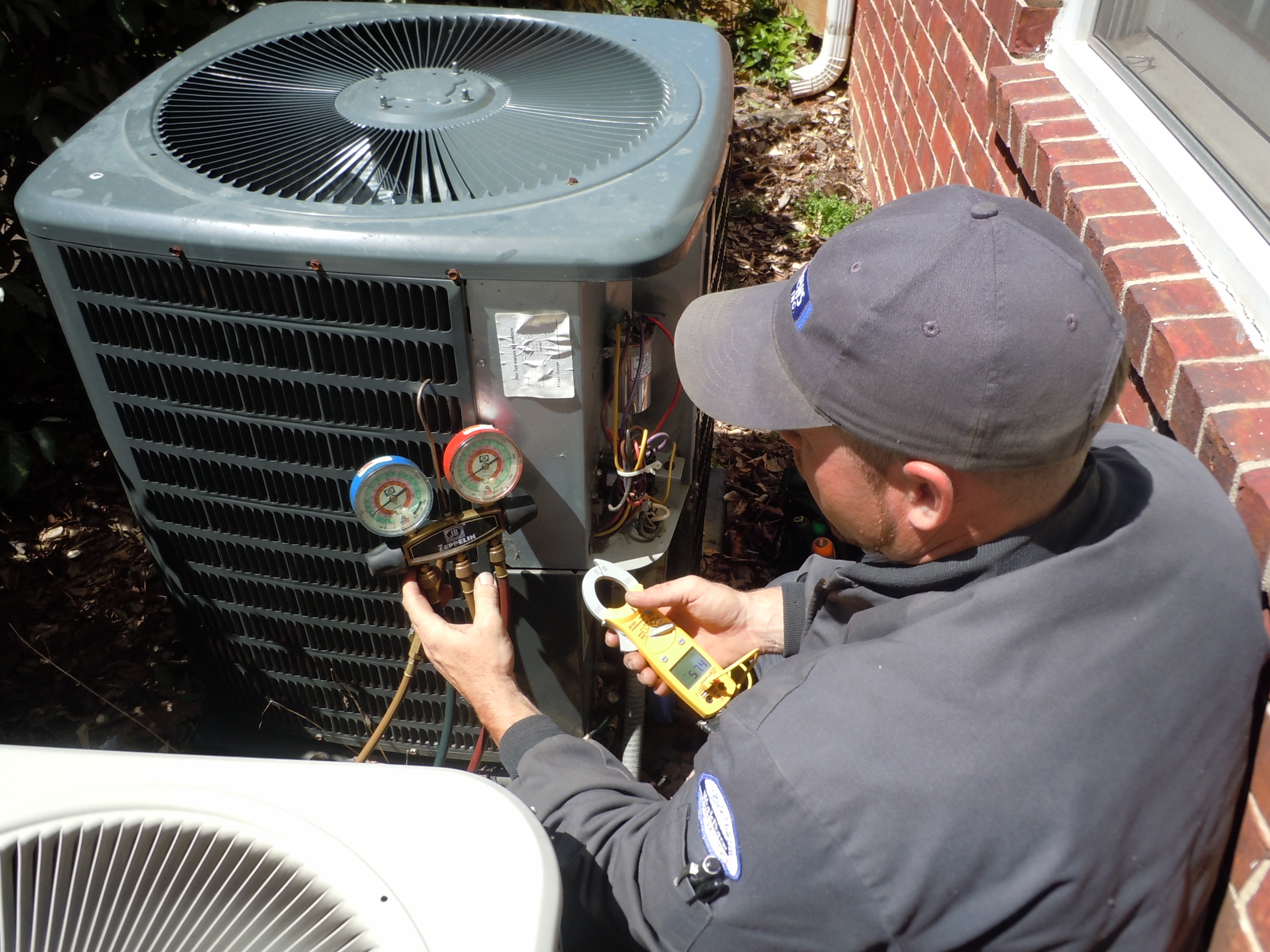Regarding maintaining a pleasant home, your HVAC system holds a crucial role. HVAC, meaning heating, ventilation, and air conditioning, is essential for regulating indoor air quality and temperature throughout. On useful site , like any other system in your home, HVAC units have a finite lifespan and may require replacement. Recognizing when to replace your HVAC system can help you save you time, money, and unnecessary discomfort.
Several crucial indicators can guide you make decision. From increasing energy bills and unusual noises to inconsistent temperatures and age-related concerns, recognizing the signs that your HVAC system may be failing is essential. By staying informed about these indicators, you can ensure that your home remains a welcoming sanctuary no matter the season, while also selecting the right options when the time comes to invest in a new system.
Comprehending Heating, Ventilation, and Air Conditioning Solutions
HVAC refers to temperature regulation, ventilation, and cooling, which are vital elements for ensuring a suitable indoor atmosphere. These systems control temperature, humidity, and air quality, playing a key role in residential and business environments. Understanding HVAC systems can help property owners and business owners make informed decisions about their requirements and guarantee ideal comfort throughout the year.
Heat components typically include furnaces, thermal pumps, or heating units, depending on the home’s design and local climate. Cooling systems usually consist of air conditioners or evaporative coolers that work to cool indoor temperatures during summer months. Air exchange is the method of exchanging indoor air with outdoor air, which facilitates clean air flow and assists filter out indoor pollutants. In tandem, these factors create an interconnected system that boosts overall comfort and energy effectiveness.
Routine maintenance and timely upgrades to HVAC systems are crucial to their functionality and lifespan. By maintaining these systems in top shape, you can avoid typical problems and maintain a safe indoor environment. Knowing how every component works together is the primary step toward making the best choices for your residence or commercial heating and cooling needs.
Common HVAC Problems and Resolutions

Many homeowners encounter challenges with their HVAC systems at some point. One frequent issue is inadequate heating or cooling. This can often be traced back to dirty air filters, which impede airflow. Consistently changing or cleaning the air filters can noticeably improve the efficiency of your system. If this doesn’t fix the issue, checking the vents for obstructions or inspecting the ductwork for leaks may be necessary.
Another frequent issue is unusual noises coming from the HVAC unit. Rattling, humming, or squealing sounds can signal that something is amiss. Detached components, such as screws or mounts, might be responsible for these noises. Securing those parts or arranging a professional inspection can help avoid further damage. In some cases, the problem could be related to defective motors or belts, which would need replacement.
Thermostat problems can also lead to issues with HVAC performance. If the system runs when it isn’t supposed to or fails to start, the thermostat may need adjustment or substitution. Additionally, smart thermostats can offer enhanced control and scheduling options, enhancing comfort and energy efficiency. Making sure that the thermostat is placed in an area with representative temperature readings is also crucial for performance.
When is it time to Replace The HVAC System
Determining the right time to replace the HVAC unit is difficult, but you'll find clear indicators pointing to the need for a new unit. One significant sign is the tan of your system. Most HVAC systems have a lifespan of about 15 to 20 years. If the unit is near or exceeding this age, it may be less efficient and more prone to breakdowns, which can lead to higher repair costs and energy bills. Getting a new system offers greater efficiency, reliability, and comfort.
Repeated repairs are a further key indicator of the need for replacement. If you frequently requesting repairs multiple times a year, especially for major issues, it could be wise to replace your system. Moreover, when repair costs are adding up to over 20 percent of the cost of a new unit, you should think about an upgrade. Modern systems are usually equipped with advanced technology that can significantly reduce the need for repairs and improve overall performance.
Energy efficiency holds importance in today’s environmental and financial landscape. If your energy bills continue to rise despite regular maintenance, this could mean that your HVAC unit is no longer operating at peak efficiency. Switching to an eco-friendly model can result in significant savings in the long run, not only in utility costs but also in reduced environmental impact. Moreover, modern HVAC systems may qualify for energy-saving incentives or incentives, making them an even more appealing option for homeowners looking to upgrade.
